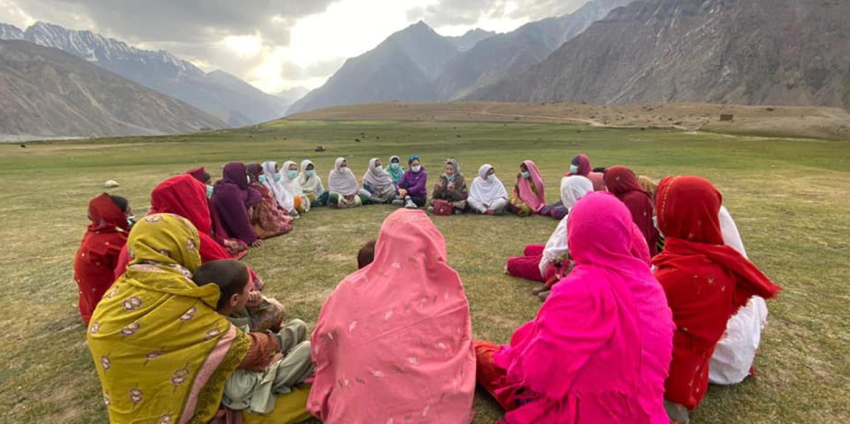In 1933 World Bank sponsored a survey and studies on global development. The findings were published in the report “Investing in Health”. It was concluded that the importance of health lies not only in an individual’s life but also crucial for the development of society at large. The workforce as a resource for human progress derives its strength from health status. In the case of women, the survey reports poorly on their health. It opines that their physical state does not allow them to contribute fully in this regard. The shortcoming thus noticed badly affects their social life, such as infringement of their human rights and unethical norms. Economically the women suffer as well as the society at large. The origin and transmission of these losses have not been unveiled. The article focuses on the importance of family planning, the effects of maternal health on subsequent generations, and the impact of nutritional deficiencies on women’s work productivity.
A fall in fertility would increase family and national welfare. This relationship has been termed the demographic dividend. When there is a decrease in mortality and fertility of a specific population, a concomitantly abrupt change in age structure occurs as fewer people die than there is a reduction in infertility. In case of providing a viable social atmosphere and employment opportunities, this “boom” of human resources can immensely add to the nation’s economic prosperity by producing more and ultimately leading to more savings. It would also result in a reduced dependency ratio. To induce females to join the workforce in large numbers Indian government enforced Maternity Amendment Bill in 2017. It increased paid maternity leave from 12 to 26 weeks, but such legislation benefited the formal sector only. To encourage women to participate in economically gainful activities in rural areas, NERGA introduced childcare centers, but the facility remained nonfunctional.
It has been statistically observed that the possibility of going for higher education was 2-7% more for children born in families having facilities for family planning. Such children have more chances to live in homes with better income sources. Availability of birth control measures may delay the first pregnancy before 22 years, thereby sparing more time for women to work in paid professions. Studies by Boom and colleagues in Kenya, Nigeria, and Senegal show that if each of the three countries complies with all criteria of contraception, enhancement in per capita income to the extent of 31-65% will occur. Similar progress is expected to take place in developing countries like Pakistan. Data gathered in Matlab, Bangladesh also verifies this concept of association of enhanced income of women with the adoption of measures for low fertility.
The mother’s health contributes to long-term national development through the provision and transmission of good human traits as human capital. Women’s health in Pakistan is generally poor and is assumed to be responsible for their relegation on a social level. The retrogression thus initiated, through the adoption of the structural adjustment program, has sped up. Depreciation of women’s health in Pakistan is an indicator of the lack of easy access to medical facilities. This trend has stigmatized the gender with serious health issues. Practices such as teenage childbearing pose a risk to mother and child’s health and entail economic losses in terms of productivity decline. It has been found that stunted children do not perform in class as well as their compeers. Even in adulthood, they are not as efficient and productive. These physical and mental weaknesses call for a nutritionally rich diet for the mother. Studies from developing countries like Kenya, South Africa, and Indonesia show that children deprived of the patronage of a mother at an early age may be deprived of school education through non-enrolment. This deprivation thus reduces the literacy rate and availability of skilled labour in the workforce. Additionally, cases in India, Pakistan, Brazil, and Bangladesh also suggest transmission of ill effects on children’s health from disorders in the mental makeup of mothers.
Micronutrient deficiencies entail a higher burden in women than in men. Females are more susceptible to the effects of economic deprivation than men. They are being poorly fed results in the onset of more health problems. On the contrary, in patriarchal societies like Pakistan and India, men are traditionally taken care of better in the family and are less subjected to malnourishment. It has been reported that 64.4% of maternal deaths occur due to iron deficiency anemia. Medical redressal of these shortcomings would restore the failing health of a woman and her succeeding generation. Investment in healthcare for women afflicted with such ailments would ultimately be compensated through dividends in the form of more productivity at the national level. In India, women involved in tea-picking were tested on how to feed them micronutrients on their productivity at work. The results showed positivity. Comparing anemic and non-anemic girls of adolescent age showed better performance concerning productivity, memory tests, and cognitive function. Healthy women are more likely to contribute toward meeting the demand for labor in the market and thus add a more significant share of development.














